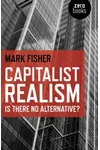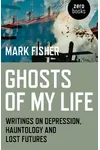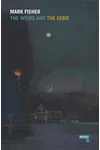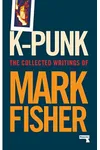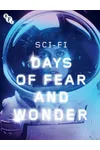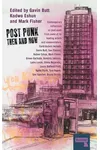Picture a British thinker who turned the mundane into a haunting critique of modern life—meet Mark Fisher! Born in 1968, Fisher wasn’t your typical academic. He was a cultural theorist with a punk rock soul, wielding sharp ideas to slice through the fog of neoliberalism. His book Capitalist Realism hit like a lightning bolt, exposing how we’re trapped in a world where imagining an alternative to capitalism feels impossible.
From his early days as a blogger under the alias ‘k-punk’ to his role as a lecturer at Goldsmiths, University of London, Fisher blended music, philosophy, and politics into a heady brew. Sadly, his brilliance was shadowed by a battle with depression, which ended in his untimely death in 2017. Yet, his words still echo, urging us to dream beyond the ordinary.
The Making of Mark Fisher
Growing up in the working-class Midlands of England, Fisher was shaped by the gritty pulse of post-punk in the late 1970s. Think Joy Division’s brooding beats and the rebellious pages of NME magazine—these were his textbooks. After studying at Hull University, he dove into the experimental chaos of the Cybernetic Culture Research Unit at Warwick, where he first toyed with radical ideas about technology and culture.
By the early 2000s, Fisher found his voice online. His k-punk blog became a digital campfire for misfits and thinkers, mixing rants about pop culture with deep dives into theory. It was raw, unfiltered, and electric—a far cry from stuffy academic journals. This outsider energy fueled his leap into writing books that would redefine leftist thought.
Mark Fisher’s Unforgettable Works
Fisher’s breakthrough came with Capitalist Realism: Is There No Alternative? (2009). In just 81 pages, he argued that capitalism isn’t just an economic system—it’s a mindset that suffocates imagination. With examples from reality TV to education, he showed how we’re stuck believing ‘there’s no alternative.’ It’s punchy, accessible, and a little unsettling—like a wake-up call you didn’t know you needed.
Then there’s Ghosts of My Life (2014), where Fisher coined ‘hauntology’—a term borrowed from Derrida to describe our obsession with lost futures. He riffed on everything from Burial’s eerie beats to 1970s TV shows, painting a world haunted by dreams that never came true. It’s melancholic yet mesmerizing, blending personal reflection with cultural critique.
His final book, The Weird and the Eerie (2017), dropped just after his passing. Here, Fisher explored the strange and unsettling in art, from Lovecraft to Lynch. It’s less political, more atmospheric—a spooky coda to his career. Across these works, his style was razor-sharp yet conversational, like a friend dissecting the world over a pint.
Why Mark Fisher Matters
Fisher’s impact is seismic. Capitalist Realism became a manifesto for a generation disillusioned with late capitalism, sparking debates among activists, artists, and academics. His hauntology lens reshaped how we see nostalgia—not as cozy comfort, but as a cry for what could’ve been. He gave the left a jolt, urging collective action over individual despair.
Even now, his ideas ripple through music, film, and politics. Thinkers like Adam Curtis owe a nod to his vibe, while his critiques of neoliberalism feel more urgent than ever. Fisher didn’t just analyze—he inspired. His legacy is a call to break free from the ‘grey curtain’ of capitalist realism and imagine something bolder.
- About Mark Fisher
- Born: July 11, 1968, in Leicester, England
- Key Works: Capitalist Realism, Ghosts of My Life, The Weird and the Eerie
- Died: January 13, 2017, leaving an unfinished project, Acid Communism
Snag Capitalist Realism and dive into Fisher’s mind-bending world—it’s a trip worth taking!
